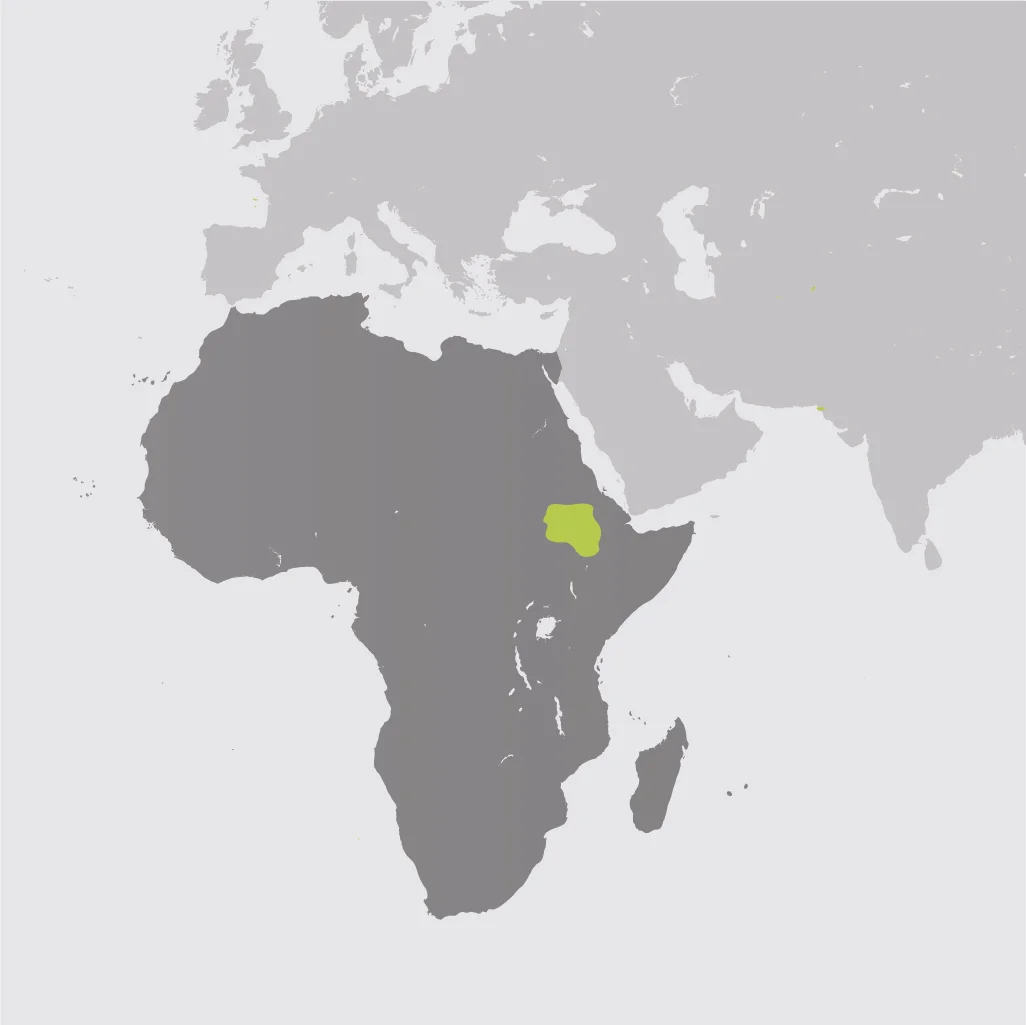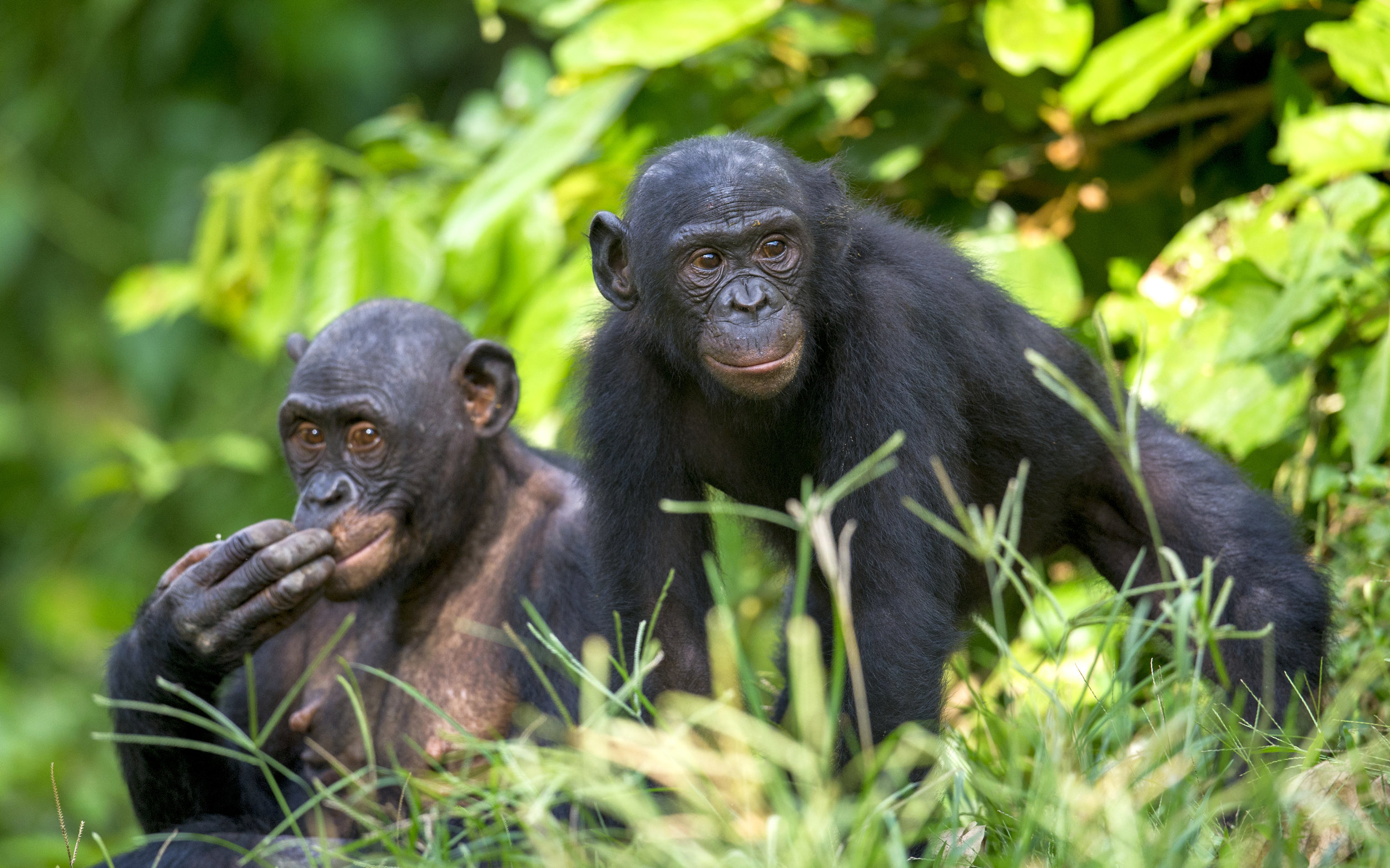Bonobo
"Curious George" by Jose Vazquez (digital)
“I’ve always had a fondness for apes, whether it’s the great mountain gorillas or the sweet and gentile Bonobo’s there is something about these animals that intrigues me. So when I saw that I had a chance to pick the Bonobo, I immediately said yes. How can you not love these guys, I mean they are the most affectionate and loving of all the large primates.”
(Also sometimes known as the Pygmy Chimpanzee)
Your purchase is helping Expedition Art and Saving Species purchase land in Sumatra! Learn more about the project.
Habitat
Bonobos live in dense, tropical forests. They are found only in the Democratic Republic of Congo (DRC) between the Congo River, the Lomami River, the Kasai/Sankuru Rivers and Lake Tumba/Lac Ndombe region.
Family Life
Bonobos, like humans, are highly social animals. Mothers provide most of the care for the young, teaching them how to feed by example rather than actually feeding them. They communicate in a variety of ways—visually, by touch and vocally. Male bonobos stay with the group that they were born into--a male’s dominance is based upon his mother’s rank.
Lifespan
Bonobos live approximately 50 to 55 years in captivity. In the wild, they can live up to around 50 years of age.
Hunting Habits/Diet
Bonobos are frugivorous; they eat mostly fruit and even play a role in seed dispersal in their habitat. They eat a variety of other foods, including nuts, seeds, sprouts, vegetation and mushrooms. They eat various parts of plants, including the leaves, flowers, bark, stems, pith and roots. They also eat small mammals, insect larvae, earthworms, honey, eggs and soil.
Population
Rough estimates of the current Bonobo population range from 15,000 to 50,000 individuals; their habitat is sustainable for another 10 years.
Fun Fact
The bonobo is also known as the pygmy chimpanzee. Like chimpanzees, they share around 98 percent of human DNA, making them our closest living relatives. Bonobos display high levels of emotional intelligence and use a variety of communication styles, including sexual interactions (both hetero and homosexual) to create deeper bonds with one another and diffuse conflict.
Why are they Endangered?
Threats to bonobo survival include hunting and habitat destruction. While there are taboos against hunting bonobos in some communities surrounding their range, they are hunted as meat by other communities. Underlying most of the threats to bonobos in the wild is the volatile political climate of DRC, which directly affects the Congolese people and both directly and indirectly affects the Bonobos.
Status
Endangered


